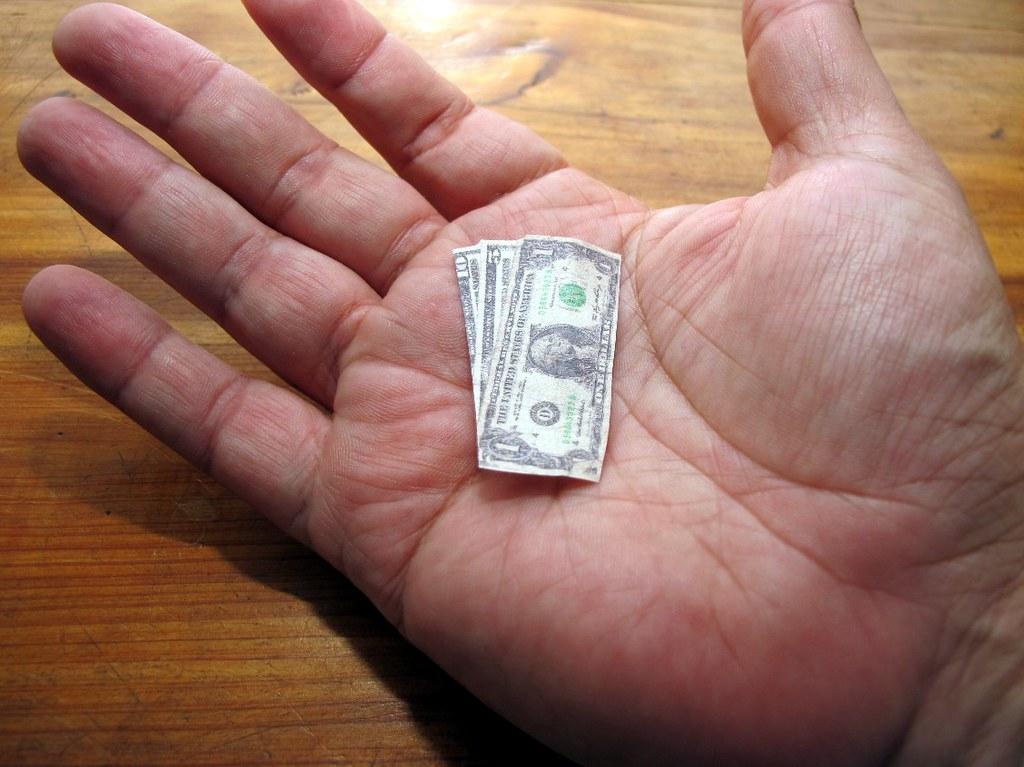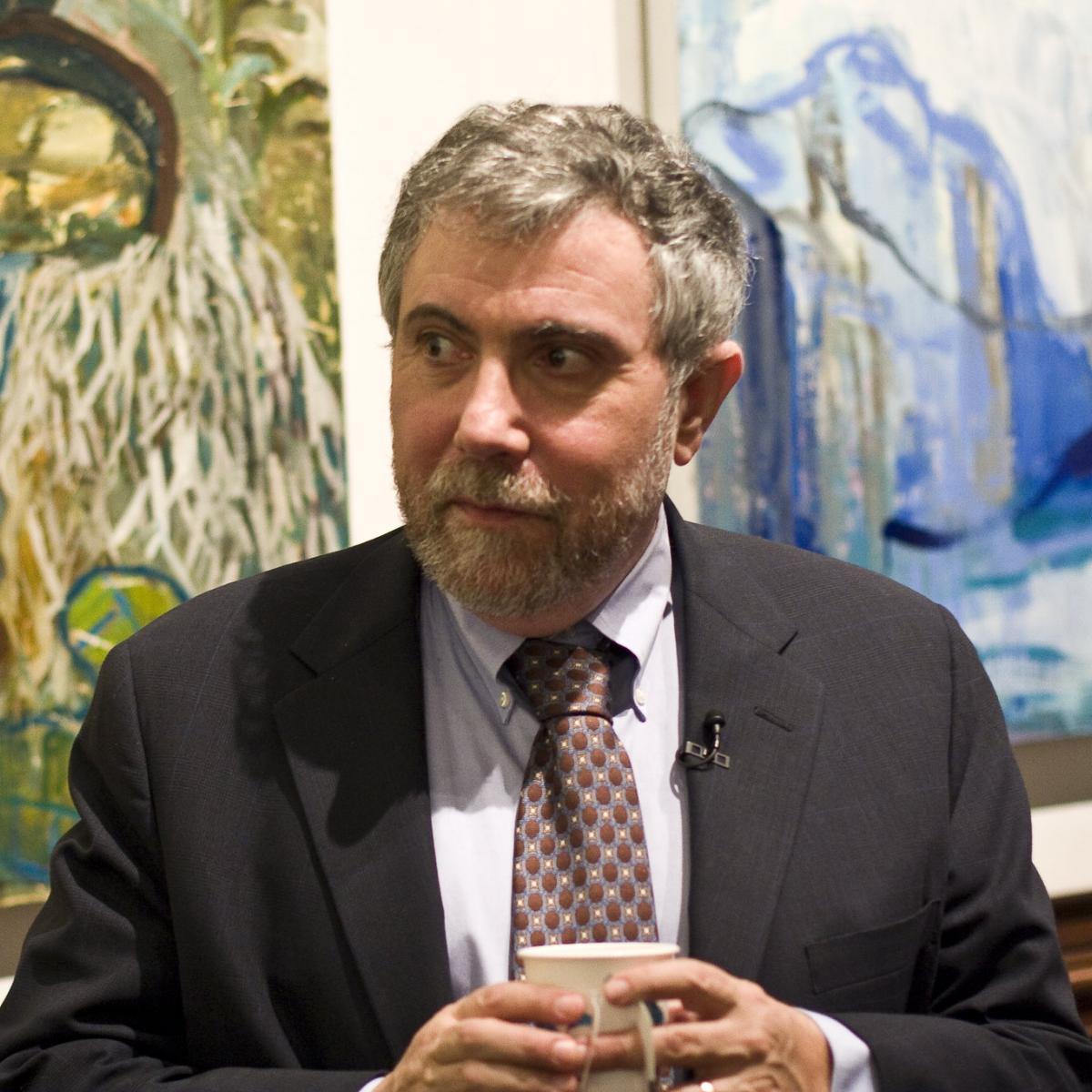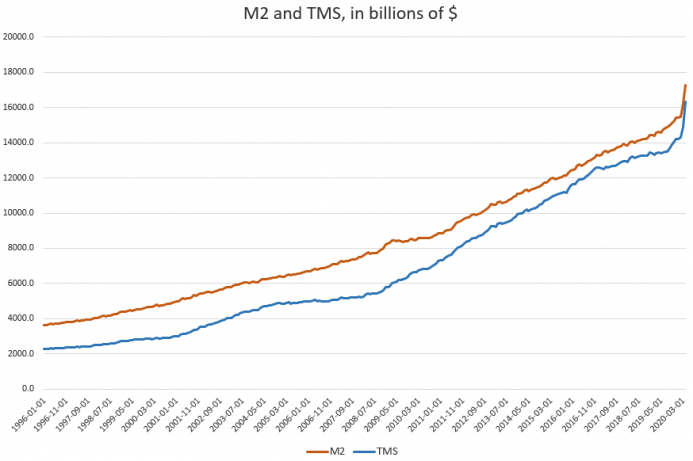Inflationism is that policy which by increasing the quantity of money or credit seeks to raise money prices and money wages or seeks to counteract a decline of money prices and money wages which threatens as the result of an increase in the supply of consumers’ goods. In order to understand the economic significance of inflationism we have to refer to a fundamental law of monetary theory. This law says: The service which money renders to the economic community is independent of the amount of money. Whether the absolute amount of money in a closed economic system is large or small does not matter. In the long run the purchasing power of the monetary unit will establish itself at the point at which the demand for money will equal the quantity of money. The fact that
Topics:
Ludwig von Mises considers the following as important: 6b) Mises.org, Featured, newsletter
This could be interesting, too:
Nachrichten Ticker - www.finanzen.ch writes Die Performance der Kryptowährungen in KW 9: Das hat sich bei Bitcoin, Ether & Co. getan
Nachrichten Ticker - www.finanzen.ch writes Wer verbirgt sich hinter der Ethereum-Technologie?
Martin Hartmann writes Eine Analyse nach den Lehren von Milton Friedman
Marc Chandler writes March 2025 Monthly
 Inflationism is that policy which by increasing the quantity of money or credit seeks to raise money prices and money wages or seeks to counteract a decline of money prices and money wages which threatens as the result of an increase in the supply of consumers’ goods.
Inflationism is that policy which by increasing the quantity of money or credit seeks to raise money prices and money wages or seeks to counteract a decline of money prices and money wages which threatens as the result of an increase in the supply of consumers’ goods.
In order to understand the economic significance of inflationism we have to refer to a fundamental law of monetary theory. This law says: The service which money renders to the economic community is independent of the amount of money. Whether the absolute amount of money in a closed economic system is large or small does not matter. In the long run the purchasing power of the monetary unit will establish itself at the point at which the demand for money will equal the quantity of money. The fact that each individual would like to have more money should not deceive us. Everybody wants to be richer, to have more goods, and he expresses it by saying he wants more money. But were he to receive additional money, he would spend it by increasing his consumption, or by increasing his investments; he would in the long run neither increase his ready cash at all, nor increase it significantly compared with the increase in his supply of goods and services. Furthermore, the satisfaction which he derives from the receipt of additional money will depend on his receiving a larger share of the additional money than others and on receiving it earlier than others. An inhabitant of Berlin, who in 1914 would have been jubilant upon receiving an unexpected legacy of 1,000 marks, did not think an amount of 1,000,000,000 marks worth his attention in the fall of 1923.
If we disregard the function of money as a standard of deferred payments, that is, the fact that there are obligations and claims expressed in fixed amounts of money maturing in the future, we easily recognize that it does not matter for a closed economy whether its total quantity of money is x million money units or 100x million money units. In the latter case prices and wages will simply be expressed in larger quantities of the monetary unit.
What the advocates of inflation desire and the proponents of sound money oppose is not the ultimate result of inflation, namely, the increase of the money quantity itself, but rather the effects of the process by which the additional money enters the economic system and gradually changes prices and wages. The social consequences of inflation are twofold: (1) the meaning of all deferred payments is altered to the advantage of the debtors and to the disadvantage of the creditors, or (2) the price changes do not occur simultaneously nor to the same extent for all individual commodities and services. Therefore, as long as the inflation has not exerted its full effects on prices and wages there are groups in the community which gain, and groups which lose. Those gain who are in a position to sell the goods and services they are offering at higher prices, while they are still paying the old low prices for the goods and services they are buying. On the other hand, those lose who have to pay higher prices, while still receiving lower prices for their own products and services. If, for instance, the government increases the quantity of money in order to pay for armaments, the entrepreneurs and workers of the munitions industries will be the first to realize inflationary gains. Other groups will suffer from the rising prices until the prices for their products and services go up as well. It is on this time-lag between the changes in the prices of various commodities and services that the import-discouraging and export-promoting effect of the lowering of the purchasing power of the domestic money is based.
Because the effects which the inflationists seek by inflation are of a temporary nature only, there can never be enough inflation from the inflationist point of view. Once the quantity of money ceases to increase, the groups who were reaping gains during the inflation lose their privileged position. They may keep the gains they realized during the inflation but they cannot make any further gains. The gradual rise of the prices of goods which they previously were buying at comparatively low prices now impairs their position because as sellers they cannot expect prices to rise further. The clamor for inflation will therefore persist.
But on the other hand inflation cannot continue indefinitely. As soon as the public realizes that the government does not intend to stop inflation, that the quantity of money will continue to increase with no end in sight, and that consequently the money prices of all goods and services will continue to soar with no possibility of stopping them, everybody will tend to buy as much as possible and to keep his ready cash at a minimum. The keeping of cash under such conditions involves not only the costs usually called interest, but also considerable losses due to the decrease in the money’s purchasing power. The advantages of holding cash must be bought at sacrifices which appear so high that everybody restricts more and more his ready cash. During the great inflations of World War I, this development was termed “a flight to commodities” and the “crack-up boom.” The monetary system is then bound to collapse; a panic ensues; it ends in a complete devaluation of money. Barter is substituted or a new kind of money is resorted to. Examples are the Continental Currency in 1781, the French Assignats in 1796, and the German Mark in 1923.
Many false arguments are used to defend inflationism. Least harmful is the claim that a moderate inflation does not do much harm. This has to be admitted. A small dose of poison is less pernicious than a large one. But this is no justification for administering the poison in the first place.
It is claimed that in times of a grave emergency the use of means may be justified which in normal times would not be considered. But who is to decide whether the emergency is grave enough to warrant the application of dangerous measures? Every government and every political party in power is inclined to regard the difficulties it has to cope with as quite extraordinary and to conclude that any means for combatting them is justified. The drug addict, who says he will abstain from tomorrow on, will never conquer the drug habit. We have to adopt a sound policy today, not tomorrow.
It is frequently asserted that an inflation is impossible as long as there are unemployed workers and idle machines. This, too, is a dangerous error. If, in the course of an inflation, money wages first remain unchanged and consequently real wages fall, more workers can be employed as long as this condition prevails. But this does not alter the other effects of inflation. Whether idle plants will resume operations depends on whether the prices of the goods they are able to produce will be among those first affected by the price rise due to inflation. If this is not the case the inflation will fail to put them back to work.
Even worse is the error underlying the assertion that we cannot speak of inflation when the increased quantity of money corresponds to a rising output of the means of production and productive facilities. It is irrelevant as far as changes in prices and wages due to the inflation are concerned for what purposes the additional money is being spent. No matter how the means for spending are procured, the interests of a community and its citizens are better served under all conditions by building streets, houses, and plants than by destroying streets, houses, and plants. But this has nothing to do with the problem of inflation. Its effects on prices and production make themselves felt even if it is used to finance useful projects.
Inflation, the issue of additional paper money, and credit expansion are always intentional; they are never acts of God which strike people, like an earthquake. No matter how great and how urgent a need may be, it can only be satisfied from available goods, by goods which are produced by restricting other consumption. The inflation does not produce additional goods, it determines only how much each individual citizen is to sacrifice. Like taxes or government borrowing, it is a means of financing, not a means of satisfying demand.
It is maintained that inflation is unavoidable in times of war. This, too, is an error. An increase in the quantity of money does not create war materials—either directly or indirectly. Rather we should say, if a government does not dare to disclose to the people the bill for the war expenditures and does not dare impose the restrictions on consumption which cannot be avoided, it will prefer inflation to the other two means of financing, namely taxation and borrowing. In any case, increased armaments and war must be paid for by people through restriction of other consumption. But it is politically expedient—even though fundamentally undemocratic—to tell the people that increased armaments and war create boom conditions and increase wealth. In any event, inflation is a shortsighted policy.
Many groups welcome inflation because it harms the creditor and benefits the debtor. It is thought to be a measure for the poor and against the rich. It is surprising to what extent traditional concepts persist even under completely changed conditions. At one time, the rich were creditors, the poor for the most part were debtors. But in the time of bonds, debentures, savings banks, insurance, and social security, things are different. The rich have invested their wealth in plants, warehouses, houses, estates, and common stock and consequently are debtors more often than creditors. On the other hand, the poor—except for farmers—are more often creditors than debtors. By pursuing a policy against the creditor one injures the savings of the masses. One injures particularly the middle classes, the professional man, the endowed foundations, and the universities. Every beneficiary of social security also falls victim to an anti-creditor policy.
It is not necessary specifically to discuss the counterpart of inflationism, namely deflationism. Deflation is unpopular for the very reason that it furthers the interests of the creditors at the expense of the debtors. No political party and no government has ever tried to make a conscious deflationary effort. The unpopularity of deflation is evidenced by the fact that inflationists constantly talk of the evils of deflation in order to give their demands for inflation and credit expansion the appearances of justification.
A selection from Interventionism: An Economic Analysis.
Tags: Featured,newsletter







